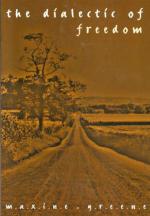|
This section contains 7,794 words (approx. 26 pages at 300 words per page) |

|
SOURCE: "Emerson and Dewey on Natural Piety," in The Journal of Religion, Vol. 75, No. 3, July, 1995, pp. 329-46.
In the following excerpt, Wilson examines the differences and similarities between the naturalism espoused by Dewey and Ralph Waldo Emerson.
Today many find themselves to be alienated from a religion with a strong textual tradition and in rebellion against the idea of a transcendent deity. In the nineteenth century, Friedrich Nietzsche said, "it is in one particular interpretation [of distress], the Christian moral one, that nihilism is rooted."1 Rather than simply abandoning religion, some, convinced by Nietzsche's analysis, have sought to combat nihilism by turning to other religious resources. Two American philosophers who have attempted to demonstrate that modern man may yet have a significant religious experience in relation to nature are Ralph Waldo Emerson and John Dewey. Both Emerson and Dewey described forms of naturalism wherein humanity might pursue the...
|
This section contains 7,794 words (approx. 26 pages at 300 words per page) |

|


